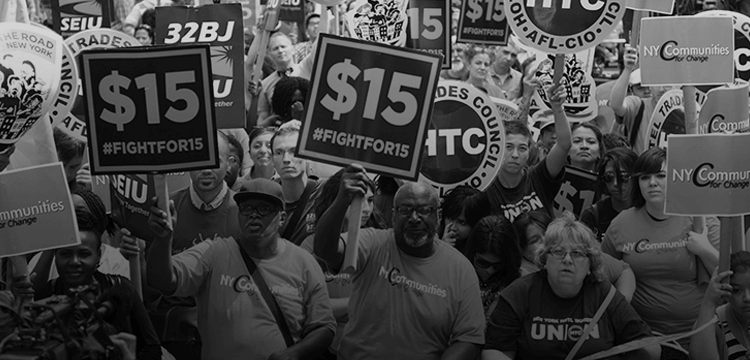Unconcerned about job creators, the Washington, D.C. Council’s Business, Consumer and Regulatory Affairs Committee advanced Mayor Muriel Bowser’s aggressive plan to hike the District’s minimum wage to $15 an hour yesterday. For tipped workers in the service industry, the Committee approved doubling the minimum wage to $5.55 an hour. Increasing the minimum wage puts D.C. businesses in a bind by having to adjust to drastic new labor costs and potentially puts D.C. workers out of their jobs.
A recent Employment Policy Institute survey of D.C. businesses across the city’s eight wards found the District is becoming increasingly unfriendly to business. Half of DC businesses surveyed “strongly agreed” the city had become unfavorable to business and reported cutting staff and reducing hours to absorb a minimum wage hike. Businesses also acknowledged charging higher prices for goods is unlikely to cover the minimum wage cost burden.
Wage activists and labor unions have vowed to continue their fight for an unsustainable $15 an hour wage increase on D.C. businesses. A wage increase not only burdens business, it costs jobs. The non-partisan Congressional Budget Office (CBO) found an increase in the minimum wage will cause job loss.
The nonpartisan Congressional Budget Office (CBO) has found any increase of the minimum wage could result in at least some job loss.
Joe Englert, a District bar owner and restauranteur, says he is likely to cut staff hours, reduce food options and inclined to stop doing business in the city.
Englert says he would likely cut staff down to part-time and probably serve less food to make up for an increase in wages. If he opened another place, he’d avoid serving food altogether. But really, Englert isn’t sure he’d even want to do that if the tipped minimum increases. I don’t know how much I’d like to be in business at that point, he says. They’re going to kill restaurants.
Rather than taking the side of job creators and their employees, the City Council has chosen instead to side with activists and labor unions, ignoring the devastating effects of a wage increase, thereby resultting in shuttered businesses and lost jobs. The “Fight For $15” is nothing more than a ploy to put money in the pockets of union bosses, while businesses and workers struggle to cope with the unsustainable costs associated with a drastic minimum wage increase.

